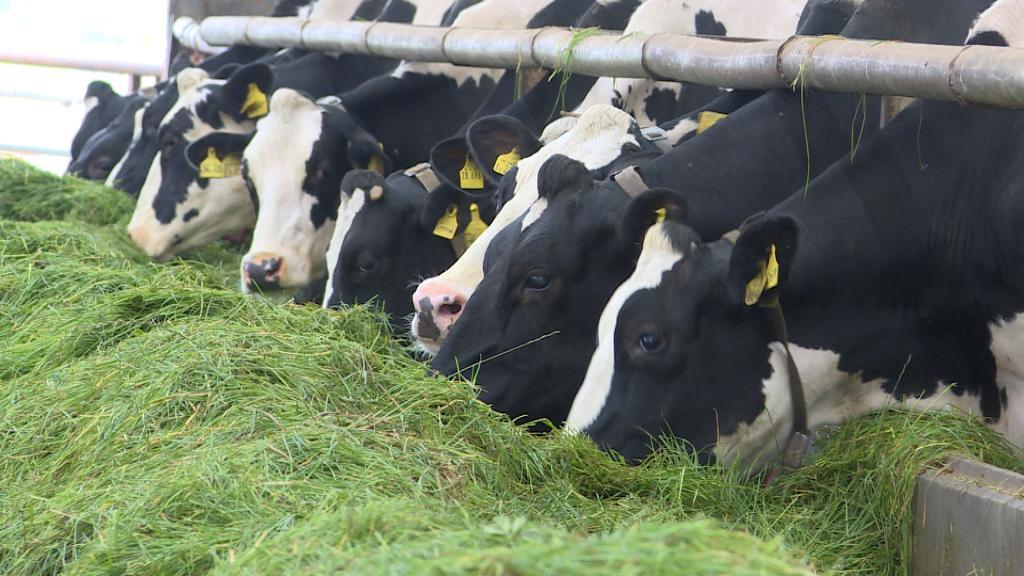Farmers face up to costs and opportunities of Brexit
- Published
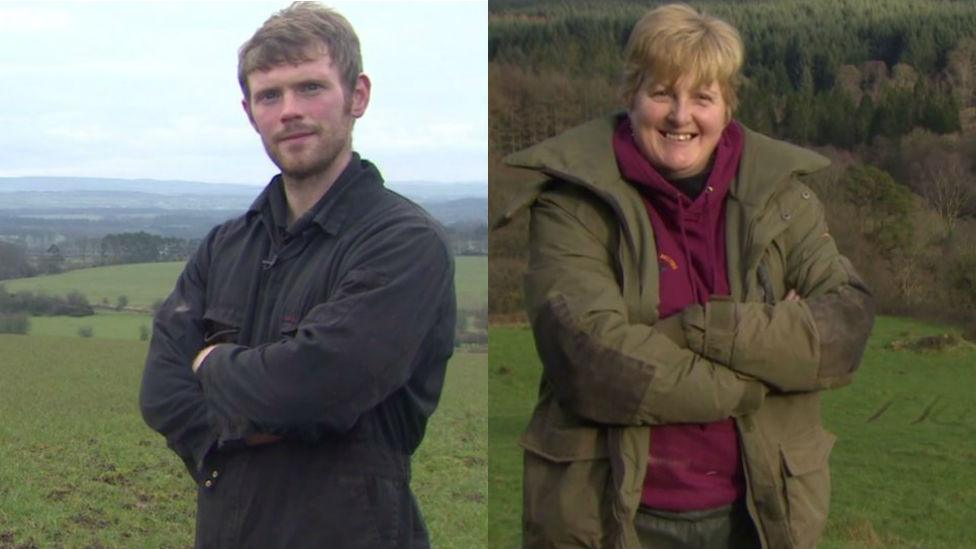
Bryce Cunningham voted leave, but Jane Landers wanted to stay in the EU
Bryce Cunningham and Jane Landers have a lot in common. They work hard. They love the land they farm. And they've found niche markets, and made them work. But they reached opposite conclusions about how to vote in the EU referendum.

Bryce told the BBC's Sunday Politics Scotland programme: "For every reason I could find to stay, I could find another to leave. In the end I took it upon myself to think 'What is affecting me, right now?'"
That led him to vote Leave.
Jane reached the opposite conclusion. She told the programme: "Although there's a lot of rules, we know where we are."
She farms 2,000 acres near Newton Stewart in the Galloway hills. Which sounds like a lot of ground. Until you realise that most of it is difficult, unproductive, and up at the top of Cairnsmore, the huge hill which overshadows Bargaly farm house.
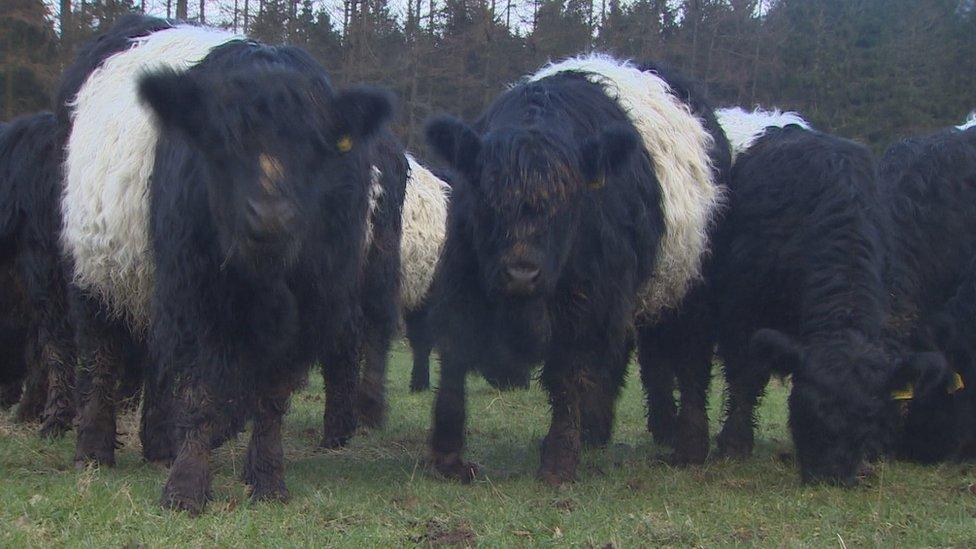
Belted Galloways originated in Dumfries and Galloway but Jane sells them around Europe
So she and her husband have sheep up on the hill. A commercial herd of Luing cattle. And prize winning Beef Shorthorns and Belted Galloways.
The Belties (as they're affectionately known) are "tremendous for hill farming", Jane says.
"They're good for conservation land as well. And tremendous meat."
She wins prizes for her heritage cattle. And sells them to farmers across Europe.
Someone's coming from Bulgaria in the next few days, hopefully to buy more stock.
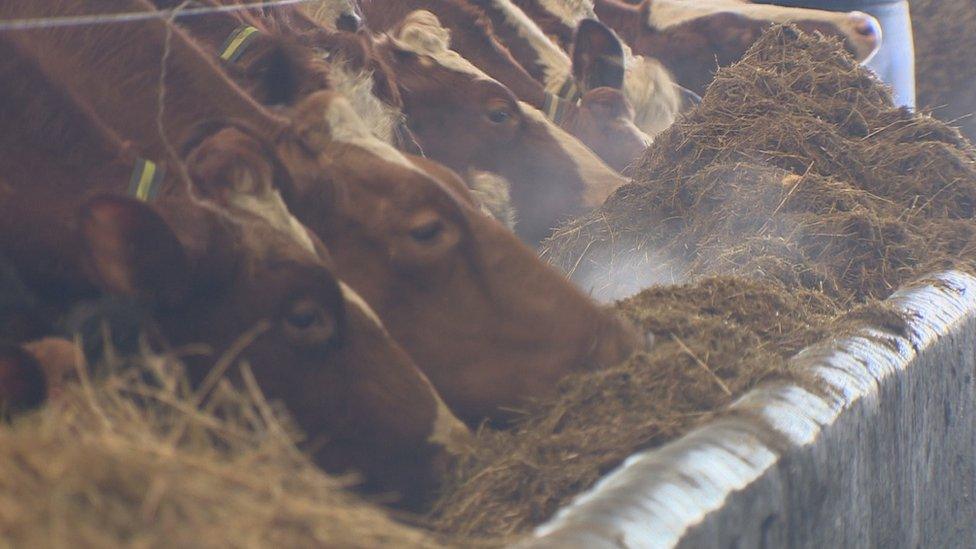
Bryce had to sell half the herd and sell off land to make the farm sustainable
Bryce has carved out a specialist market too. One that was more or less forced on him after he took over the farm, near Mauchline in Ayrshire, in the midst of a perfect storm.
"At the time, we were only getting 9.7p per litre for our milk. We were losing an incredible amount of money, and we couldn't stay farming if it was going to continue."
Half the herd of Ayrshires, which had been built up by his grand-father and father - who died in 2014 - had to go. And so did the small amount of land the family owned.
"What I said to myself was, there was no way I was letting anyone dictate a price to me again. I wanted to have a sustainable future for the farm. And I wanted people drinking the milk to know where it came from."
That led him to set up a business selling milk direct to his customers. Some, people who want to buy local, and some artisan cafes and coffee shops. Which has led some to call him a hipster farmer - a tag he embraces.
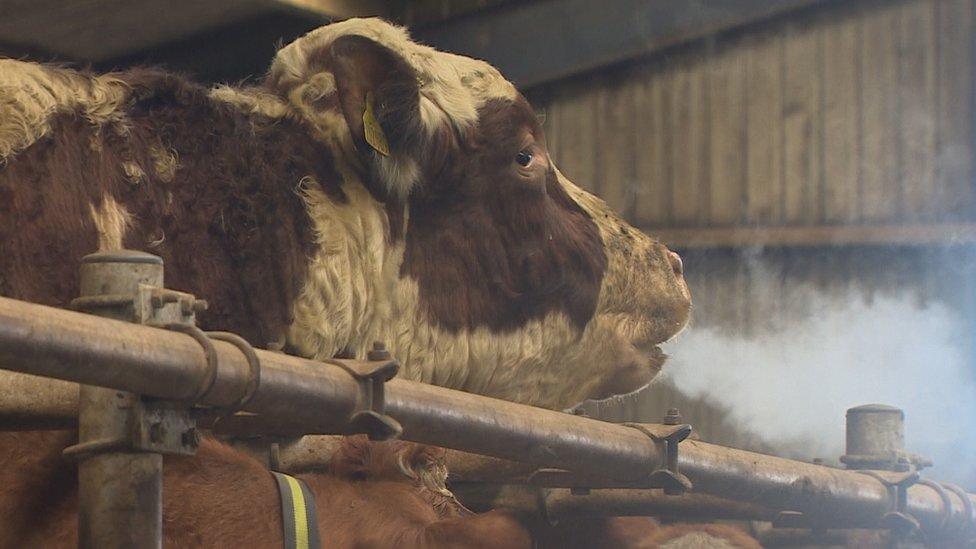
"Endurance" is Bryce's bull, who he says lives up to his name
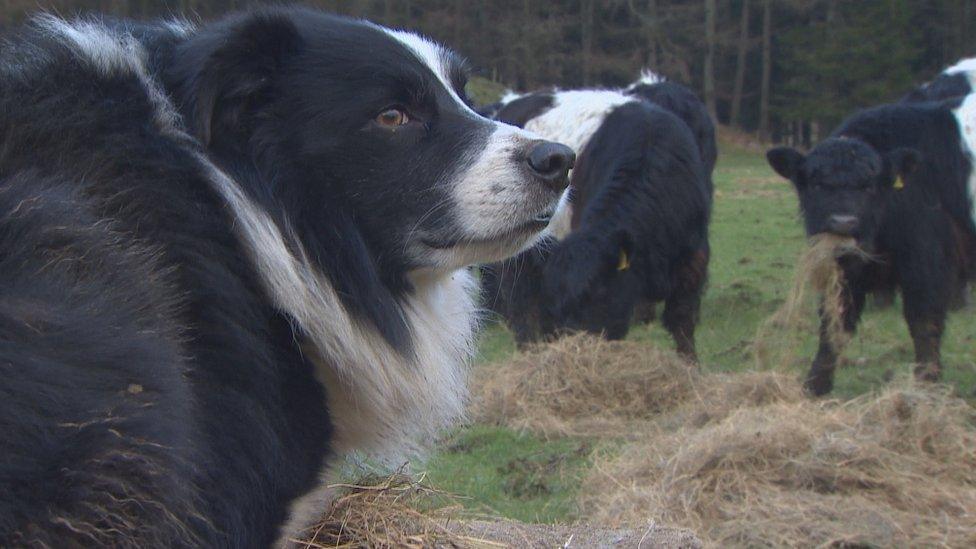
Jane Landers also bred her sheepdog and says you need a clever dog out on the hill
As both farmers look to the future, Bryce outlined his belief that the whole structure of agriculture might need to be re-engineered.
"The latest figure was something like 45% of all European farmers' income is from subsidy. I'm not speaking for every farmer, but I'm pretty sure farmers would rather have a profitable and sustainable business rather than have to depend on handouts."
However, he accepts that Scotland has crofts and small herds that will continue to need assistance.
Jane's hill farm is an example of that. And she wants politicians - at Westminster and Holyrood - to take farming seriously.
"They need to listen to agriculture. Because food is an important thing. If they don't look after it, we don't know what our markets will be for buying in.
"So they need to realise that agriculture is a big thing for Britain."
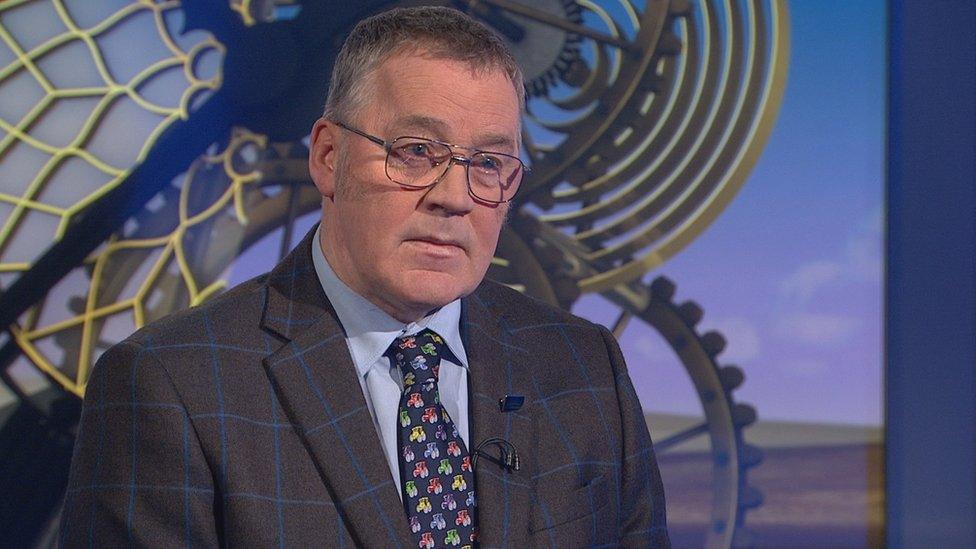
Andrew McCornick has just been elected President of NFU Scotland
The new President of the National Farmers Union in Scotland, Andrew McCornick, said: "Whole communities rely on agricultural activity ... we employ 63,000 people directly in farming and crofting.
"But there's 360,000 jobs down the line dependant on us. And across the UK, one in 8 people are dependent on the food, farming and drinks industry."
At the moment, he said, there were no definitive guarantees about the structures, regulations and support payments that would apply to farming outside the EU.
But he was optimistic that the "Scottish brand is something we can sell all over the world. We're recognised for our quality beef and lamb. The whole of the drinks sector depends on our really high quality cereal industry".
He added: "There's opportunities in there. And we have to ensure that we're getting the Scottish in there first."
- Published7 February 2017
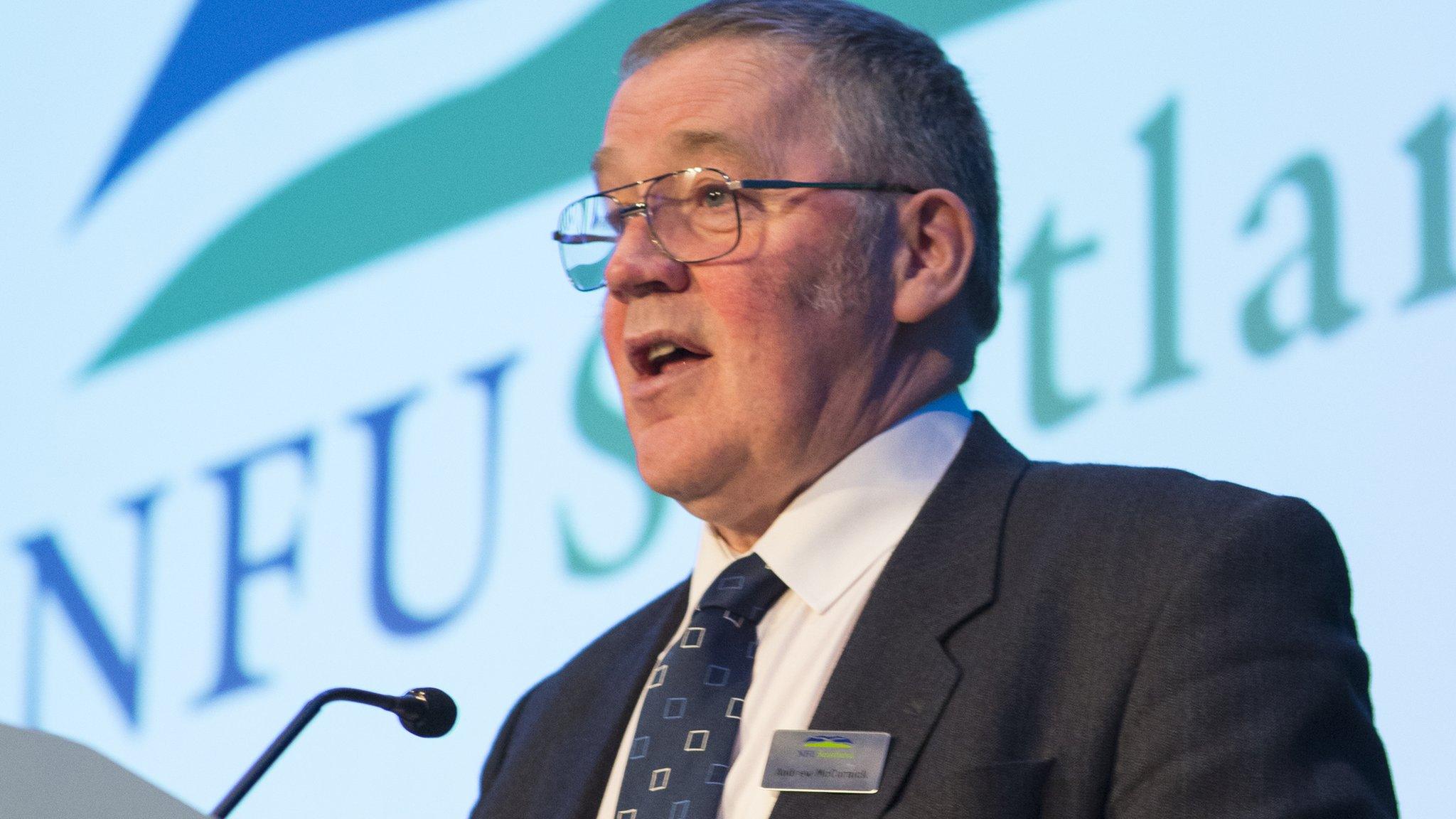
- Published5 September 2016
